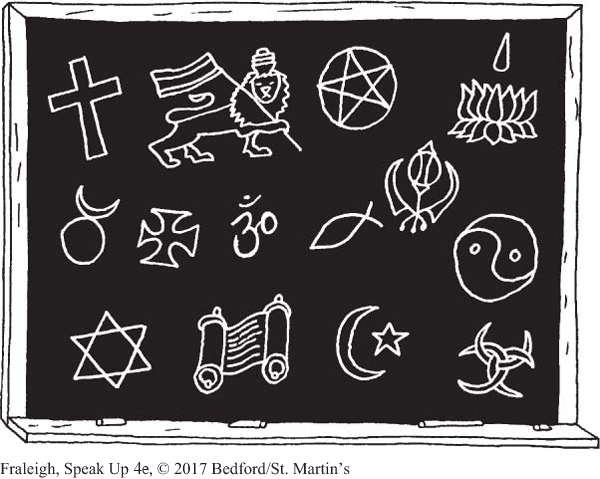Religious Orientation
Religious orientation—a person’s set of religious beliefs—
For some people, religious orientation strongly shapes their views on a wide range of issues—
One particularly enduring example of this approach is the late pope John Paul II’s address to the state of Israel at the Yad Vashem Holocaust memorial in March 2000. The pope knew that many Jews believed that his predecessors had been indifferent to Jewish suffering during the Holocaust. Demonstrating his sensitivity to their feelings, the pope repeatedly used Old Testament passages to describe suffering and awareness of human evil. In addition, he condemned all the hatred, acts of persecution, and displays of anti-
Page 135

The current pope, Francis, has continued John Paul II’s example and taken many steps further toward improving relations between Christians and the worldwide Jewish community. Welcoming a Jewish delegation to Rome in 2015 to commemorate the fiftieth anniversary of the Nostra aetate, the declaration promulgated by Paul VI that led to improved relations between Jews and Catholics, Francis declared in his address to the public at St. Peter’s Square: “Yes to the rediscovery of the Jewish roots of Christianity. No to anti-